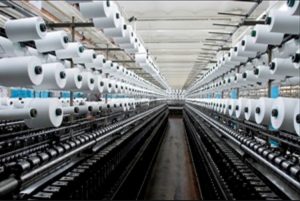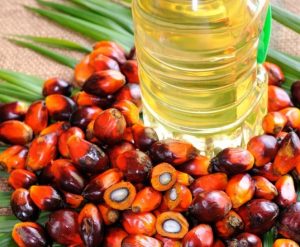Angola has enjoyed six years of lasting prosperity and progress, which are crucial for its development and growth, after the signing of this peace agreement. The nation has embarked on a rebuilding plan with aspirations in recent years. Luanda is Angola's capital and has several future growth characteristics of the region.
Start a Business in Angola, Click Here
The Kwanza currency has recently increased its demand for products and services in the region. The Kwanza currency. Political and economic prosperity has opened up fresh and outstanding investment prospects. The GDP growth over 2007-2008 was 13.2%, while 16.7% in 2006-2007 and 19.6% in 2005-2006-2007.
Reasons to Invest in Angola
• The average double-digit GDP growth in the economy (namely 10.3 percent from 2004 to 2014);
• Angola has plenty of natural resources;
• Economic and technological cooperation agreement with Hungary;
• 2nd biggest investment destination for the Republic of Angola 2014;
• 7th biggest diamond producer
Below mentioned are some profitable opportunities
1. Agribusiness

Many investors do not know the rich past of Angola's agriculture. Angola was the main exporter of many agricultural goods, including coffee, corn, tobacco, and rice, before the civil war. Angola became the 4th largest coffee exporter in the world at the beginning of the 1970s. Strong farming, rural trade, and favorable climate conditions, large water bodies including plenty of rainfall and surface water, and fertile soil were the foundation of the country's scientific capability.
Related Books- Agriculture, Agro Based, Bakery, Wood, Ice Cream, Chocolate Cereal Food, Confectionery, Dairy, Farming, Fisheries, Food & Beverages, Fruits, Meat, Milk, Oils & Fats, Snacks, Spices, Vegetables, Flowers, Rice, Wheat, Corn, Tobacco And Tobacco Products
In Angola, the Ministry of Agriculture is changing its law to guarantee a stronger adherence to its policies to guarantee citizens food self-sufficiency. New legislation introduced in 2005 includes soil, agricultural production, cooperative law, forests, and seeds. There are so many natural forests to be used. Eucalyptus, cypress, and pine plantations that once constituted the base for a modest export industry contribute to a rich heritage.
2. Mineral Based Business

Precious gems- Angola was the world's fifth-largest diamond producer in 2006 and the leading geologists in the world forecast an alluvial supply of 130 million carats in Angola. The nation has at least six virgin kimberlites gold mines, which are the ten largest on earth and estimated at 180 million carats worth a few trillion dollars.
Angola has been listed as one of the world's most important developing countries with considerable gold reserves, iron, phosphates, Manganese, copper, plaster, quartz, marble, black granite, beryl, zinc, and various strategic minerals.
3. Crude Oil Business

Angola mainly exports over 90% of its crude oil to China and the United States. In 2007, the United States imported almost 496,000bbl/d (507,000 gross oil imports) of crude oil from Angola, making it the sixth-largest source of crude oil after the Nigerian regime in the United States. Often 2007 saw Angola as the second-largest crude oil exporter to China, which also exceeded the Kingdom of China after Saudi Arabia.
The Angolan National Petroleum and Gas Agency had unveiled plans to auction 50 new oil and gas bills between 2019 and 2025 before the Angolan government declared emergency steps to combat coronavirus and auction of the first 10 in 2019.
4. Textile Industry Business

Angola's textile industry relies mainly on cotton processing activities and cotton cultivation. The country is hoping to boost the Compound annual growth rate (CAGR) which decreased by 2.2 percent between 2008 and 2013. The textile market has increased considerably internally.
Related Books:- Textile Spinning, Processing, Natural Fibers, Natural Dyes, Pigments, Textile Dyes, Pigments, Dye Intermediates, Woollen Spinning, Weaving, Knitting, Dyeing Technology
The textile industry in Angola has several major plans and objectives to be accomplished and met. The nation has begun to tackle its possible challenges and is heading for recovery from civil war. This condition is being seriously assessed by the textile sector of the country and is making constructive efforts to ensure realistic and sustained resurrection.
5. Palm Oil Business

Angola is a leading importer of palm oil in the field of South Africa in Malaysia. The annual average export of Palm Oil to Angola for the past five years has been 129,000 metric tonnes. In 2019, RBD palms oleins (128.00 metric tonnes or 87%) and the other cooking oil (13,000 metric tonnes) and RBD palms are the main imports of Malaysian palm oil (4,500 MT). Last year Angola also imported approximately 67,000 Indonesian palm oil. Thus, this adds to another lucrative business opportunity in Angola.
Related Videos:- Oils and Fats
NIIR PROJECT CONSULTANCY SERVICES (NPCS) is a reliable name within the industrial world for providing integrated technical practice services. NPCS is manned by engineers, planners, specialists, money consultants, economic analysts, and style specialists with in-depth expertise within the connected industries.
This report is led by NPCS, which is a reliable and assuring site to trust. We provide the latest reports with the closest accuracy to provide the best information to our readers.
PM_Art2021
Tags
#DetailedProjectReport #businessconsultant #BusinessPlan #feasibilityReport #NPCS #entrepreneurindia #startupideas #InvestmentOpportunities #StartupBusiness #BusinessOpportunities #textilebusiness #textilemanufacturing #PalmOilProduction #PalmOilBusiness #AngolaBusiness #AngolaStartups #AngolaEntrepreneurs